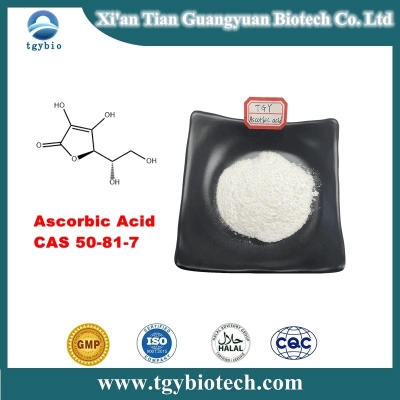-
Categories
-
Pharmaceutical Intermediates
-
Active Pharmaceutical Ingredients
-
Food Additives
- Industrial Coatings
- Agrochemicals
- Dyes and Pigments
- Surfactant
- Flavors and Fragrances
- Chemical Reagents
- Catalyst and Auxiliary
- Natural Products
- Inorganic Chemistry
-
Organic Chemistry
-
Biochemical Engineering
- Analytical Chemistry
-
Cosmetic Ingredient
- Water Treatment Chemical
-
Pharmaceutical Intermediates
Promotion
ECHEMI Mall
Wholesale
Weekly Price
Exhibition
News
-
Trade Service
Calcifediol, also known as vitamin D2, is a synthetic form of vitamin D that is commonly used in the chemical industry.
It is produced through a series of chemical reactions known as synthetic routes.
The most common synthetic route for calcifediol involves the reaction of ergosterol, a natural steroid found in fungi, with sodium hydroxide to form ergosterol esters.
This reaction is followed by a series of chemical transformations, including hydrolysis, reduction, and esterification, to produce calcifediol.
Another synthetic route for calcifediol involves the reaction of cholesterol with UV light to form vitamin D3, which is then converted into calcifediol through a series of chemical reactions.
This route requires the use of hazardous chemicals, such as methanol and sodium hydroxide, and is therefore less common than the first route.
The synthetic routes for calcifediol have been extensively studied and optimized over the years, resulting in a highly efficient and cost-effective process.
The production of calcifediol has also been scaled up to meet the growing demand for this important chemical in the chemical industry.
One of the key advantages of synthetic calcifediol is its purity, as it is produced in a highly controlled environment and does not contain any impurities that may be present in natural sources of vitamin D.
This purity makes it ideal for use in a wide range of applications, including the production of vitamin D-enriched food products and the development of new medications.
In addition to its purity, synthetic calcifediol is also more readily available than natural sources of vitamin D, such as sunlight and oily fish.
This makes it an important component in the global food supply, as it can be added to food products to help prevent vitamin D deficiency, which is a common problem in many parts of the world.
The demand for calcifediol is expected to continue to grow in the future, driven by the increasing awareness of the importance of vitamin D for human health and the growing demand for vitamin D-enriched food products.
This growth is likely to be accompanied by improvements in the production and purification processes for calcifediol, further enhancing its value in the chemical industry.
In conclusion, calcifediol is an important synthetic chemical that is widely used in the chemical industry for the production of vitamin D-enriched food products and other applications.
The synthetic routes for calcifediol have been extensively studied and optimized, resulting in a highly efficient and cost-effective process.
With continued growth in the demand for vitamin D, the importance of synthetic calcifediol is likely to continue to grow in the years to come.







